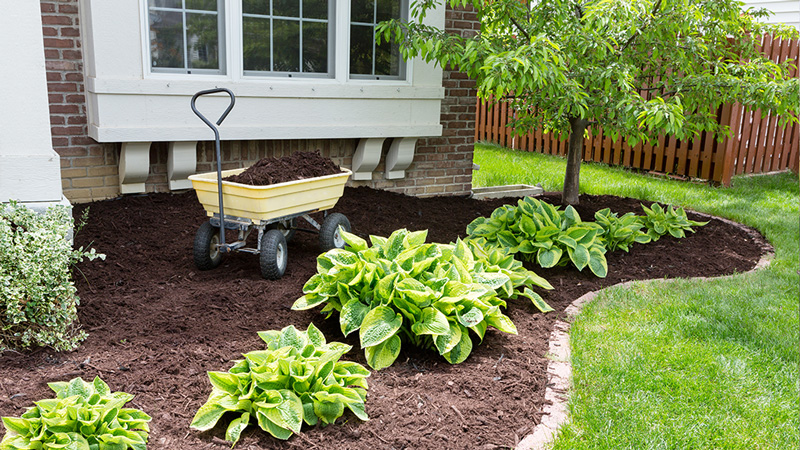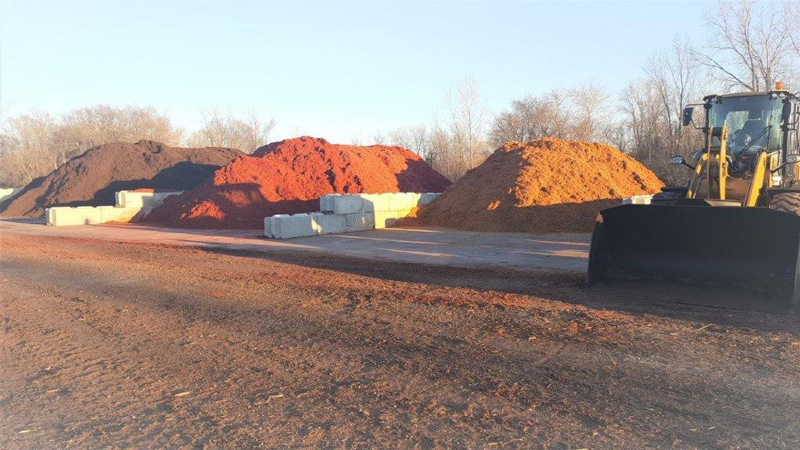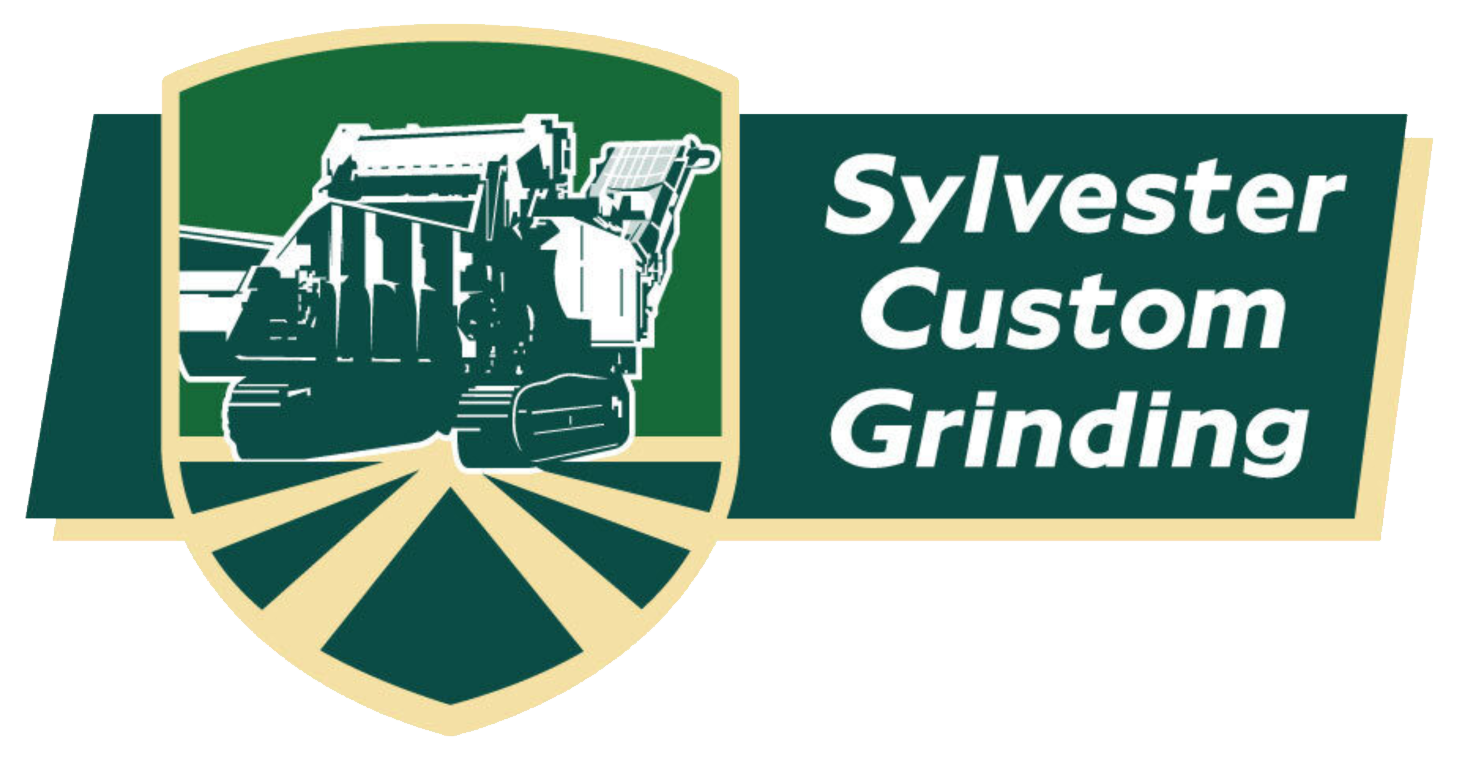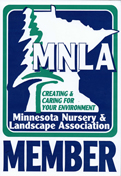By: Steve Sylvester, ISA Certified Arborist
Mulch is a useful addition to any garden or yard. Whether it's organic or inorganic, mulch helps moderate soil temperature and weather damage, prevent weed growth, and retain soil moisture. Plus, a well-incorporated batch of mulch can totally transform the aesthetic of a garden or flower bed and give it a unique flair.
Mulching your garden or flower bed is an affordable and easy project, but if you're new to mulching, you may have some questions about how to get the best results out of your efforts. These steps will help you understand the ins and outs of how to use mulch.
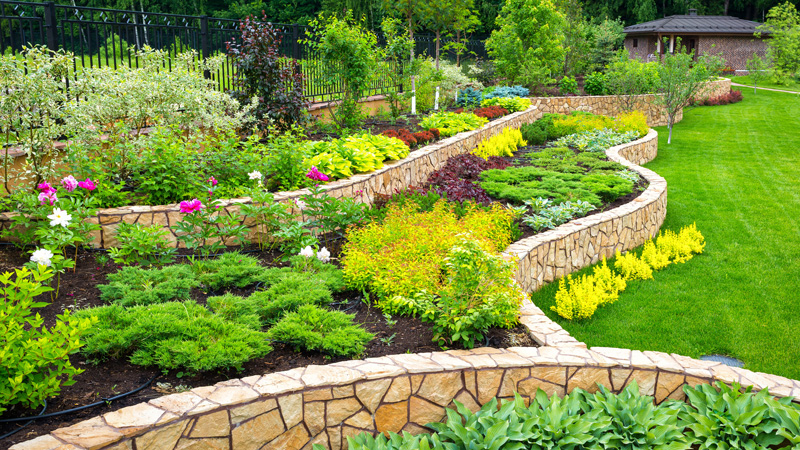
Step 1 – Choosing The Best Mulch Type For Your Needs
For flower beds, organic mulches are typically better than inorganic ones. Organic mulches are composed of wood products, such as bark and branches.
NOTE: Make sure your mulch supplier is using only 100% natural wood products and NOT Pallets or construction debris as they tend to have many foreign objects and contaminants in them that could cause harm to human or pets!
Organic mulches enrich the soil as they decompose and provide a welcoming habitat for earthworms and beneficial microorganisms. On the flip side, they can also attract pests like moles and rabbits.
Organic mulches come in a variety of consistencies. Mulches that are shredded 2-3 times are finer than single-shredded mulches and may be easier to spread and work with in a garden. Additionally, mulches may be aged up to several months in order to enhance the decomposition process. This provides additional nourishment to the soil. With that in mind, you will need to eventually replenish your mulch once it decomposes fully.
Step 2 – Measuring The Right Quantity
For a flower bed or similar areas of your garden, mulch should typically be between 2-4 inches thick. A layer of mulch that is too thin may not adequately protect your soil from weather damage and weeds, while a layer that is too thick may retain too much moisture and eventually lead to rot.
Your mulch amounts should also be calculated in accordance with your specific soil properties. Soils that tend to retain water will require less mulch than sandy soils. Additionally, mulch tends to settle and compact as it decomposes over time, so consider applying an additional inch or so of mulch to your soil after some time has passed.
Renew organic mulches every year or two as they break down. You can dig the old mulch into the garden soil to finish decomposing, or simply spread a new layer of mulch directly on top of the old.
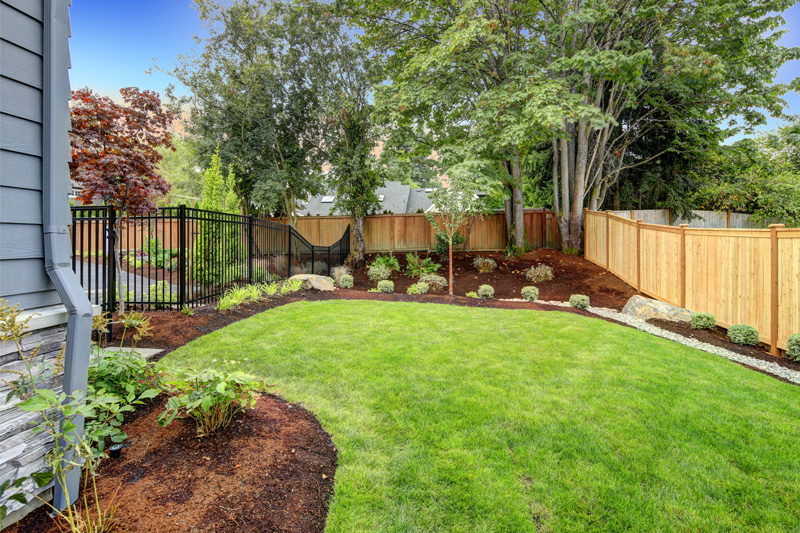
Step 3 – The Best Time To Mulch Your Gardens
If you are mulching a flowerbed, as opposed to a garden or whole yard, apply your mulch in the later parts of spring just before the weather turns warm. Before applying mulch, carefully remove all weeds and roots from the garden. Just as mulch can supercharge your plants, it can also provide a great environment for weeds, so get them out of the way ahead of time.
If weeds are still a concern, put down a layer of five to seven sheets of newspaper before mulching to help cut the risk of weeds. Be sure to remove any labels from the paper. Labels could be problematic in your soil, but newspaper ink is soy-based, so it won't add toxins to the soil as it decomposes, and in fact, instead adds organic material.
